Curriculum – Science
Vision
The Science Department vision is to deliver a high quality, inspiring curriculum that provides the foundation for understanding the world through biology, chemistry and physics. To have an appreciation of how undertsnading science has changed all our lives and relates to real world contexts, irrespective of background or starting point. Students will be taught key knowledge and concepts and develop a sense of excitement and curiosity about natural phenomena. They will develop scientific knowledge and conceptual understanding and be equipped to understand the uses and implication of science today and for the future.
The Curriculum will be developed to build on key knowledge and principals, students will become confident in scientific enquiry, handling, presenting and evaluating data through a wide range of examples and scenarios.
Department Virtue
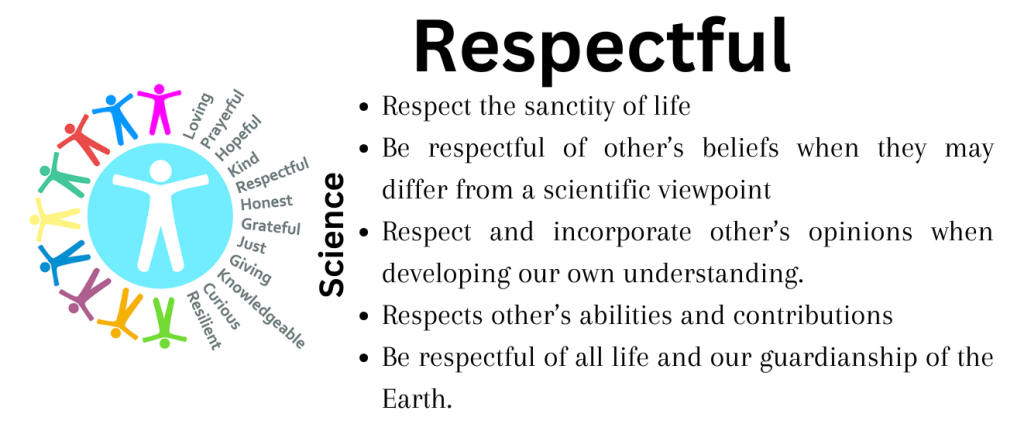
KS3 Curriculum Overview
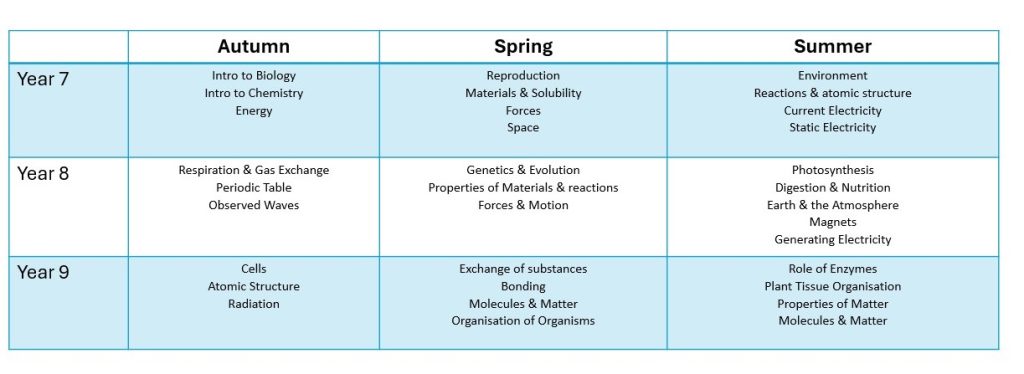
Science Curriculum Mapping – Overview of KS3
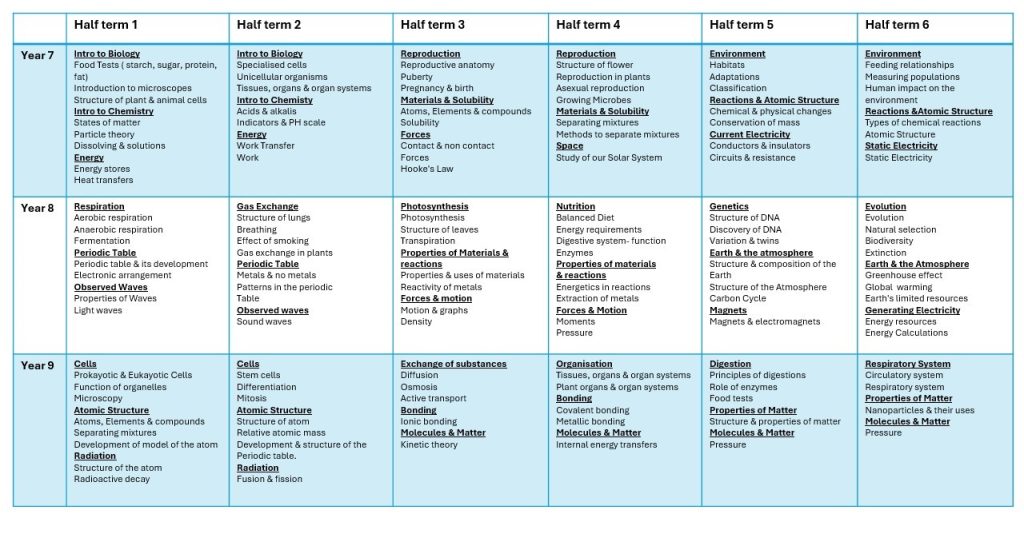
Science Curriculum Mapping – Combined Science GCSE
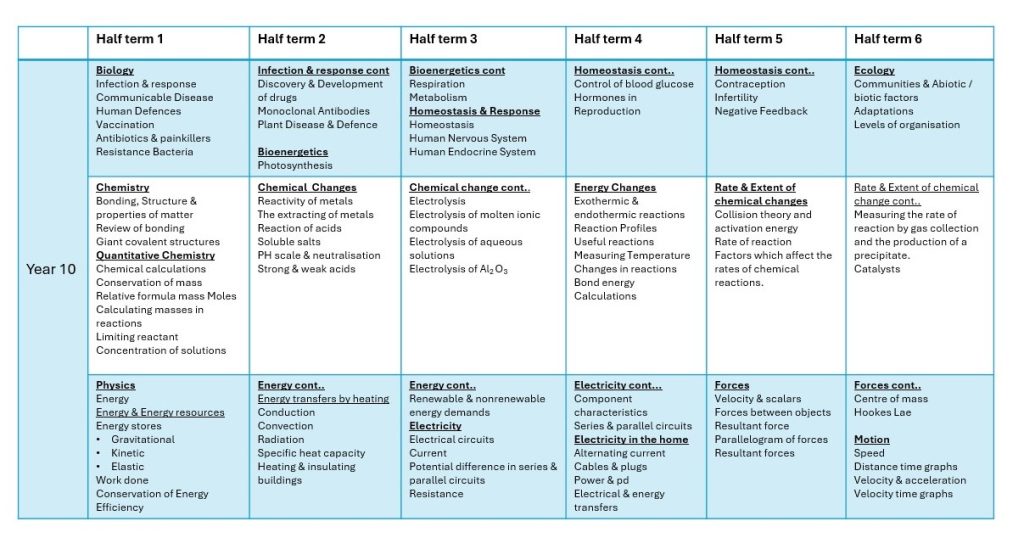
Science Curriculum Mapping – Combined Science GCSE
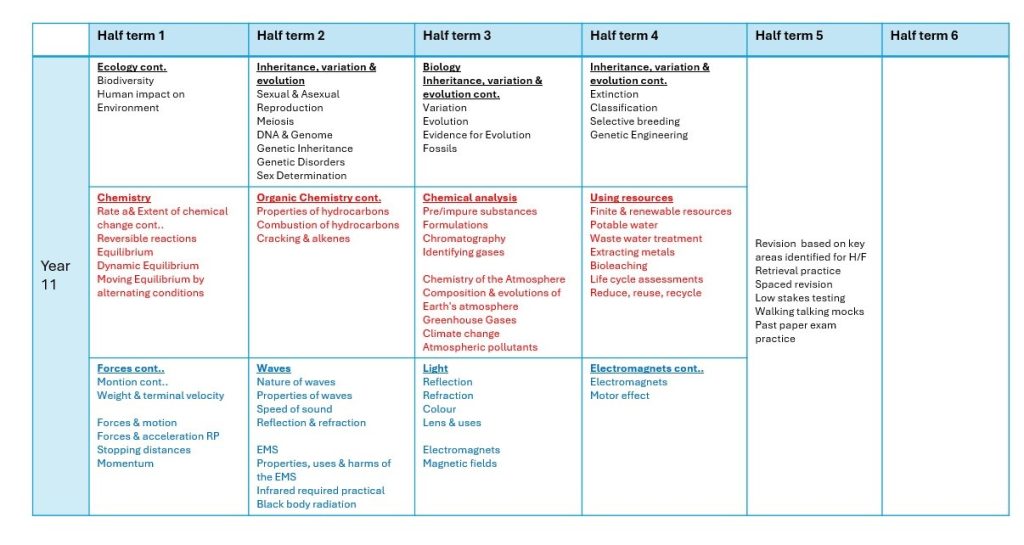
Science Curriculum Mapping – Biology GCSE
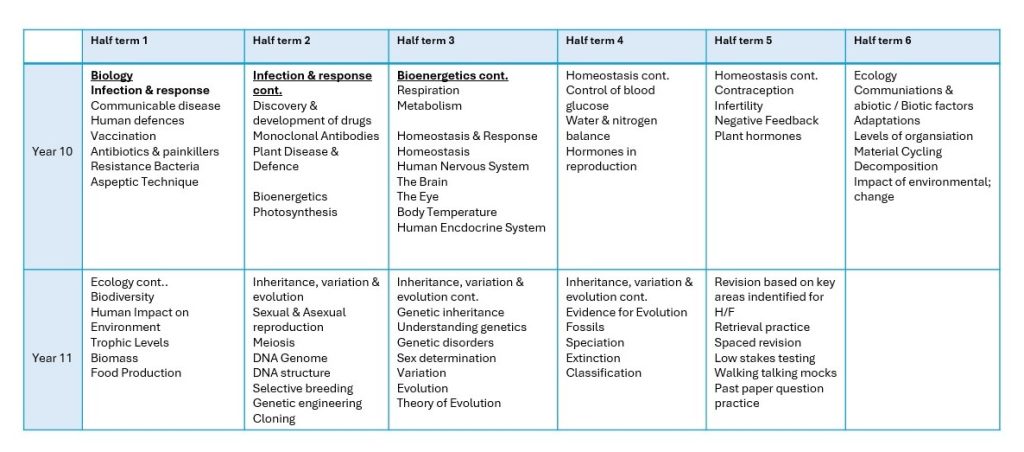
Science Curriculum Mapping – Physics GCSE
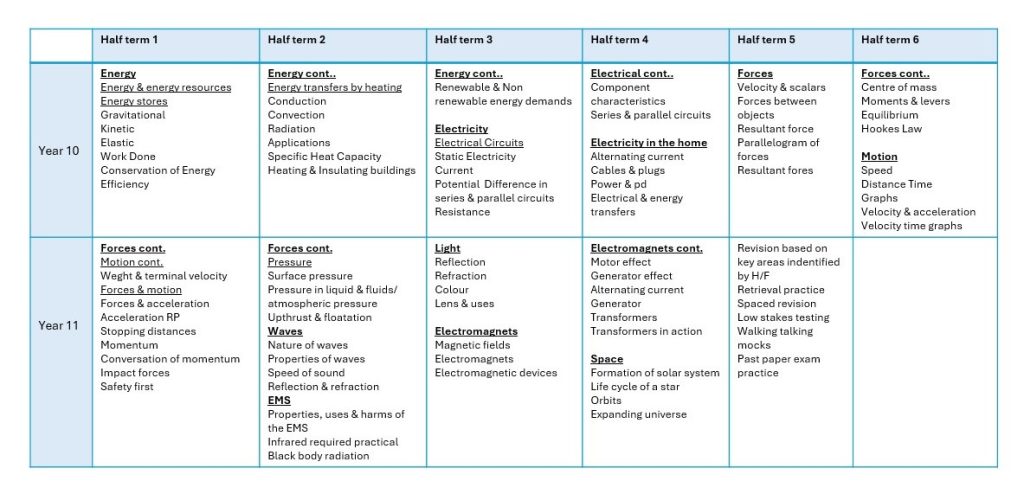
Science Curriculum Mapping – Chemistry GCSE
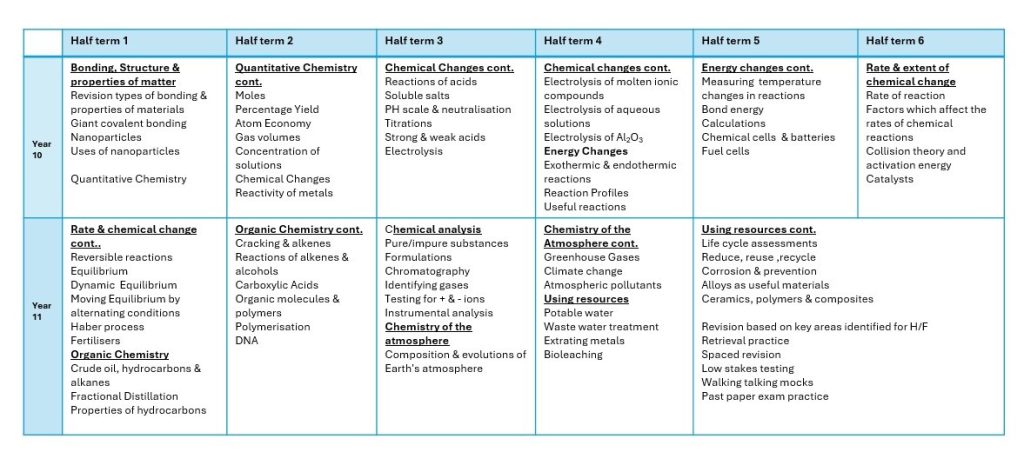
GCSE Subjects
Science is a core subject and all students study Combined Science at GCSE. Combined science is worth 2 GCSEs and taught for 5 hours per week. Students can choose Triple Science as one of their options and complete a separate GCSE in Biology, Chemistry and Physics. This is taught over 7.5 hours a week. Science at KS4 is taught by a specialist subject teacher.
The aim of the KS4 study of science is to fire pupils curiosity about phenomena in the world around themand offers opportunities to find explantions. It engages learners, linking direct practical experience with scientiic ideas. Pupils learn how knowledge and understyanding is science are rooted in evidence. They discover how scienctific ideas contribute to technological change – affecting industry, business and medicine and improving quality of life. They trace the development of Science worldwide and recognise its cultural significance. They learn to question and discuss issues that may affect their own lives, the directions of societies and the future of the world.
For each science students study a range of topic giving a throught understanding to enable successful onward study at A leve; and beyond. For each subject a range of practical skills are practised and a significant protion of the marks in the exam are based on the assessment of these skills.
GCSE Assessment
Our exam board is AQA and more information on each subjct can be found at www.aqa.uk/subjects/science/gcse by following the links to Biology, Chemistry, Physics or Combined Science Trilogy.
All Science GCSEs are linear, content and learning is assessed at the end of Year 11 as terminal exams.
For Combined Science students sit 6 exams, 2 in each science. An average numbers of marks of all 6 exams is calcuated to award two GCSE grades to candidates.
For GCSEs in Biology, Chemistry and Physics, students sit 2 exams in each subject. These 2 exams are average and students are awarded 3 independednt GCSE grades.
Higher education pathways
Aside from studying Biology Chemistry and Physics at University, Science may well be one of the most versatile subjects with many different options. Science explains the way the world works.
Extra-curricular
Eco Club – KS3 club working towards Eco-Schools Green Flag Status
www.eco-schools.org.uk/
STEM Club for KS3, offering dynamic clubs and resources to develop students STEM skills.
www.stem.org.uk/stem-clubs
Contact
Science Head of Department
Miss M Wallace
Second in Department
Mr B Robinson
br20@blessededward.co.uk

